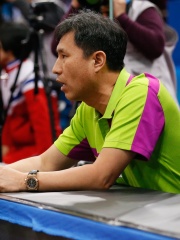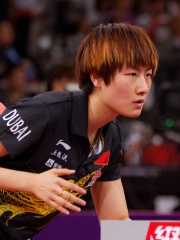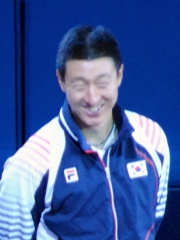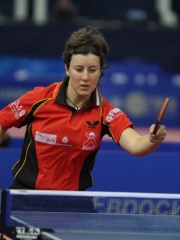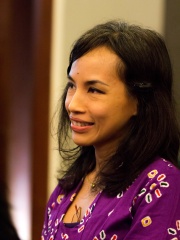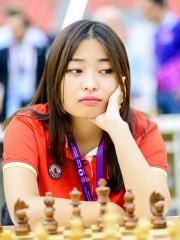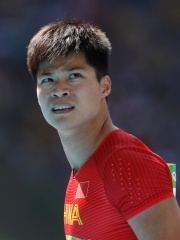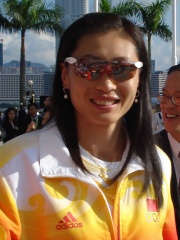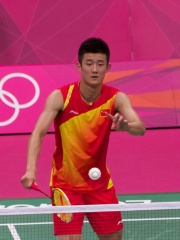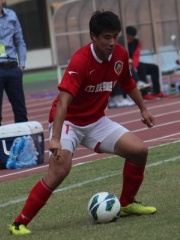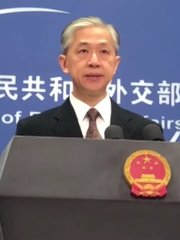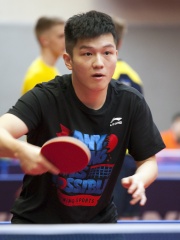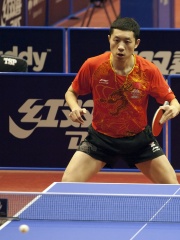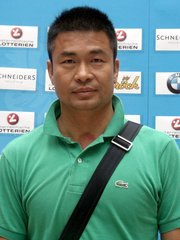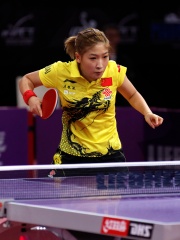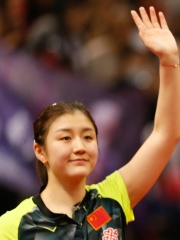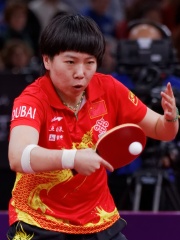Table Tennis Player
Ma Wenge
1968 - today
EN.WIKIPEDIA PAGE VIEWS (PV)

 Ma Wenge
Ma Wenge
His biography is available in 15 different languages on Wikipedia. Ma Wenge is the 58th most popular table tennis player (down from 53rd in 2024), the 1,163rd most popular biography from China (down from 1,131st in 2019) and the 19th most popular Chinese Table Tennis Player.
Memorability Metrics
Page views of Ma Wenge by language
Among Table Tennis Players
Among table tennis players, Ma Wenge ranks 58 out of 107. Before him are Hugo Calderano, Wei Qingguang, Lee Chul-seung, Ahn Jae-hyung, Kim Ki-taik, and Ding Ning. After him are Oh Sang-eun, Csilla Bátorfi, Krisztina Tóth, Chen Longcan, Qiao Hong, and Gordana Perkučin.
Most Popular Table Tennis Players in Wikipedia
Go to all RankingsHugo Calderano
1996 - Present
HPI: 47.17
Rank: 52
Wei Qingguang
1962 - Present
HPI: 47.13
Rank: 53
Lee Chul-seung
1972 - Present
HPI: 47.07
Rank: 54
Ahn Jae-hyung
1965 - Present
HPI: 47.06
Rank: 55
Kim Ki-taik
1962 - Present
HPI: 46.75
Rank: 56
Ding Ning
1990 - Present
HPI: 46.68
Rank: 57
Ma Wenge
1968 - Present
HPI: 46.45
Rank: 58
Oh Sang-eun
1977 - Present
HPI: 46.03
Rank: 59
Csilla Bátorfi
1969 - Present
HPI: 45.95
Rank: 60
Krisztina Tóth
1974 - Present
HPI: 45.94
Rank: 61
Chen Longcan
1965 - Present
HPI: 45.93
Rank: 62
Qiao Hong
1968 - Present
HPI: 45.70
Rank: 63
Gordana Perkučin
1962 - Present
HPI: 45.52
Rank: 64
Contemporaries
Among people born in 1968, Ma Wenge ranks 696. Before him are Jari Isometsä, Štěpánka Hilgertová, Dalian Atkinson, Ayu Utami, Rexy Mainaky, and Richard Sulík. After him are Junot Díaz, Alberto Belsué, Sarah Parish, Shoichi Funaki, Bart Brentjens, and Warren Ellis.
Others Born in 1968
Go to all RankingsJari Isometsä
SKIER
1968 - Present
HPI: 46.59
Rank: 690
Štěpánka Hilgertová
ATHLETE
1968 - Present
HPI: 46.57
Rank: 691
Dalian Atkinson
SOCCER PLAYER
1968 - 2016
HPI: 46.55
Rank: 692
Ayu Utami
WRITER
1968 - Present
HPI: 46.53
Rank: 693
Rexy Mainaky
BADMINTON PLAYER
1968 - Present
HPI: 46.51
Rank: 694
Richard Sulík
BUSINESSPERSON
1968 - Present
HPI: 46.48
Rank: 695
Ma Wenge
TABLE TENNIS PLAYER
1968 - Present
HPI: 46.45
Rank: 696
Junot Díaz
WRITER
1968 - Present
HPI: 46.44
Rank: 697
Alberto Belsué
SOCCER PLAYER
1968 - Present
HPI: 46.44
Rank: 698
Sarah Parish
ACTOR
1968 - Present
HPI: 46.42
Rank: 699
Shoichi Funaki
WRESTLER
1968 - Present
HPI: 46.38
Rank: 700
Bart Brentjens
CYCLIST
1968 - Present
HPI: 46.38
Rank: 701
Warren Ellis
COMIC ARTIST
1968 - Present
HPI: 46.35
Rank: 702
In China
Among people born in China, Ma Wenge ranks 1,163 out of NaN. Before him are Zhang Qingwei (1961), Ju Wenjun (1991), Su Bingtian (1989), Forrest Li (null), Zhang Ning (1975), and Chen Long (1989). After him are Hu Ge (1982), Yu Nan (1978), Ma Mingyu (1970), Dong Fangzhuo (1985), Simu Liu (1989), and Wang Wenbin (null).
Others born in China
Go to all RankingsZhang Qingwei
BUSINESSPERSON
1961 - Present
HPI: 46.58
Rank: 1,157
Ju Wenjun
CHESS PLAYER
1991 - Present
HPI: 46.57
Rank: 1,158
Su Bingtian
ATHLETE
1989 - Present
HPI: 46.52
Rank: 1,159
Forrest Li
BUSINESSPERSON
HPI: 46.51
Rank: 1,160
Zhang Ning
BADMINTON PLAYER
1975 - Present
HPI: 46.49
Rank: 1,161
Chen Long
BADMINTON PLAYER
1989 - Present
HPI: 46.48
Rank: 1,162
Ma Wenge
TABLE TENNIS PLAYER
1968 - Present
HPI: 46.45
Rank: 1,163
Hu Ge
ACTOR
1982 - Present
HPI: 46.45
Rank: 1,164
Yu Nan
ACTOR
1978 - Present
HPI: 46.44
Rank: 1,165
Ma Mingyu
SOCCER PLAYER
1970 - Present
HPI: 46.41
Rank: 1,166
Dong Fangzhuo
SOCCER PLAYER
1985 - Present
HPI: 46.35
Rank: 1,167
Simu Liu
ACTOR
1989 - Present
HPI: 46.35
Rank: 1,168
Wang Wenbin
DIPLOMAT
HPI: 46.33
Rank: 1,169
Among Table Tennis Players In China
Among table tennis players born in China, Ma Wenge ranks 19. Before him are Fan Zhendong (1997), Wang Tao (1967), Jiao Zhimin (1963), Xu Xin (1990), Wei Qingguang (1962), and Ding Ning (1990). After him are Chen Longcan (1965), Qiao Hong (1968), Chen Weixing (1972), Liu Shiwen (1991), Chen Meng (1994), and Li Xiaoxia (1988).
Fan Zhendong
1997 - Present
HPI: 47.89
Rank: 13
Wang Tao
1967 - Present
HPI: 47.68
Rank: 14
Jiao Zhimin
1963 - Present
HPI: 47.55
Rank: 15
Xu Xin
1990 - Present
HPI: 47.32
Rank: 16
Wei Qingguang
1962 - Present
HPI: 47.13
Rank: 17
Ding Ning
1990 - Present
HPI: 46.68
Rank: 18
Ma Wenge
1968 - Present
HPI: 46.45
Rank: 19
Chen Longcan
1965 - Present
HPI: 45.93
Rank: 20
Qiao Hong
1968 - Present
HPI: 45.70
Rank: 21
Chen Weixing
1972 - Present
HPI: 44.95
Rank: 22
Liu Shiwen
1991 - Present
HPI: 44.88
Rank: 23
Chen Meng
1994 - Present
HPI: 44.73
Rank: 24
Li Xiaoxia
1988 - Present
HPI: 44.49
Rank: 25



